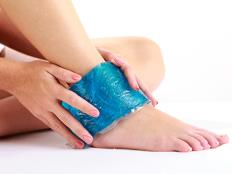If your focus is on a shorter distance like a 5K, these workouts should be included in your training plan:
- 4 x 1-mile repeats on the track at 10K pace with a 400-meter recovery jog in between reps.
- 10 x 200-meter repeats on the track at 2-mile race pace with a 200-meter recovery jog in between reps.
- 3 x 1-mile repeats on the track at 5K race pace with a 400-meter recovery jog in between reps.
You'll notice that not only are you running at your 5K-goal pace, but you're also running faster (2-mile) and slower (10K). These "support" paces help to develop the speed you need to achieve your 5K goals.
More: 6 Speed Workouts to Run a Faster 5K
For the marathon, it's still a good idea to work occasionally on your speed, but your primary focus should be on building aerobic fitness because of the longer distance. Your pace will be slower, but you still need to focus on what your race-pace goals are. If you're training slower than you plan to race, you won't meet your goals. Adjust your training to include some race-pace workouts, regardless of the distance.
The Difference Between the Two
A key difference between aerobic and anaerobic workouts is that there are more intervals and longer periods of rest during anaerobic workouts. The rest period allows your body to recover so you can continue to run at an anaerobic pace. Without a recovery, there'd be far too much lactate in your blood to allow you to continue running at the pace you need to build speed. In the marathon, aerobic training can be done more frequently because it doesn't take as long to recover.
It's also important to schedule anaerobic workouts in advance to make sure you have enough rest days in between interval sessions. A good running coach can be a big help too, and will teach you how to plan a proper progression of runs. Going too hard or scheduling interval training too frequently can lead to injury.
Every runner needs a good combination of aerobic and anaerobic workouts to reach their potential. Each has value—and in combination, can help you lose weight while running—and will help you to become a faster runner.
More: Speed Workout Tips From 7 Experts
 Sign up for your next race.
Sign up for your next race.
- 2
- of
- 2
About the Author

Get ACTIVE on the Go


Couch to 5K®
The best way to get new runners off the couch and across the finish line of their first 5K.
Available for iOS | Android






Discuss This Article